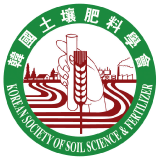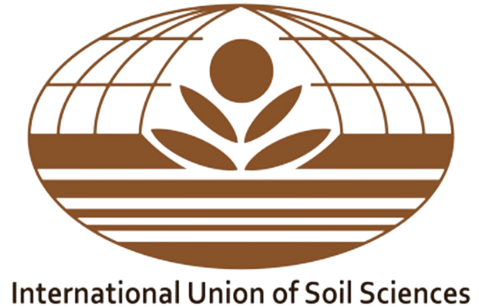
Sponsored by the Korean Society of Soil Science and Fertilizer (KSSSF)
Description
The IUSS Jeju Award was co-established by IUSS and the Korean Society of Soil Science and Fertilizer (KSSSF) in commemoration of having the successful 20th World Congress of Soil Science (WCSS) in Jeju, Korea in 2014. The Award is a strategic award being delivered to a young and mid-career soil scientist who has innovative and outstanding accomplishments in education, research, or extension in soil sciences and has made a substantial contribution to IUSS missions.
Initiating in 2018, the IUSS Jeju Award will be given to one awardee every four years at each World Congress of Soil Science. The Award consists of a plaque or equivalent, a certificate, a US$ 1.000 honorarium, and financial support for air fare and accommodation to attend the presentation at the WCSS.
If there is no acceptable candidate, the award will not be given.
Criteria & Guidelines
A. Eligibility
- Eligibility of nominators
Nominations for the IUSS Jeju Award are accepted only from members of the IUSS. Members of the the IUSS Committee on Prizes and Awards (CPA) are ineligible to make nominations. - Eligibility of nominees
Nominees for the Award must be living at the time when their nominations are submitted. Nominees for the award must have completed a Ph.D. degree in soil science and their career must have been less than 15 years after their completion of Ph.D. degree in Soil Science. Members of the Prizes and Awards committee are ineligible to be nominated.
B. Nomination procedures
- Preparation: Preparation of the best nomination possible for a distinguished colleague is a compliment to both the nominee and the nominator, and it provides maximum assurance that the nominee will be selected to receive the award. Obtaining the assistance of the nominee in supplying information is permissible and may improve the accuracy and completeness of the documentation. Clearly identifying and evaluating the nominees contribution is the most important part of the nomination, because nominations are ranked primarily on this basis.
- Format: Each nomination must contain the nomination proper and one copy of each supporting letter (not more than three letters). A cover letter from the nominator is not necessary; if the nominator includes a cover letter, it will be considered as one of the three (maximum) supporting letters. The total nomination package must not exceed 10 pages. This translates to 7 pages maximum for the body of the nomination, plus the three one-page letters of support. NOTE: It is imperative that nominations do not exceed the length specified in these instructions. Nominations that exceed the specified length will not be considered. All nomination materials must be submitted to the Chair of the Committee on Prizes and Awards (CPA). This can be done by E-mail as well as by regular mail.
- Deadline: The deadline for receipt of the nominations is 12 months before the beginning of the next WCSS at which the prizes are to be bestowed.
C. Processing of nominations
The Committee on Prizes and Awards (CPA) evaluates the nominations. This can be done by correspondence and need not involve a meeting of the Committee itself. The Committee sends its recommendation to the President of the Union, with a copy to the Secretary. Persons selected to receive the Award are informed promptly by the Secretary after a decision has been taken by the CPA.
If a nomination is not successful, it can be re-submitted after four years.
D. Nomination format
The nomination documents must contain the following information: Title of the award, with the name of the nominee and the name of the appropriate award.
- Nominee: Include the name, mail address (with zip code), telephone number and e-mail address.
- Nominator: Include the name, position, signature, mail address, telephone number and e-mail address.
1. Qualifications of the nominee
- degrees received (with field, date and institution for each degree)
- membership in honorary academic societies
- honours and awards received
- professional positions held (with years, organisations and locations)
- professional publications, giving the total number (not the titles) of professional publications in each of the following categories:
✓ books written
✓ books or other publications edited
✓ chapters of books written
✓ technical papers, refereed
✓ technical papers, non-refereed
✓ non-technical papers
✓ patents
✓ invited lectures, seminars or symposia presentations
✓ other related oral, written or visual presentations or products
2. In addition, list only the ten (10) most significant publications, patents, presentations or products in literature citation form.
- Professional contributions, other than publications (not more than 3 pages). Identify and briefly list in this section the contributions, other than publications, on which the nomination is based.
- Organization(s) of which the nominee is a member.
3. Evaluation (not more than three pages)
A concise summary and evaluation of the nominee’s significant contributions; explain why the nominee is especially well qualified to receive the award.
4. Supporting letters
Not more than three supporting letters are to be included, each one page in length. Supporting letters are solicited by and addressed to the nominator. Members of Committee on Prizes and Awards are not eligible to write supporting letters.
IUSS Jeju Award 2022
Umakant Mishra
Dr. Umakant Mishra of the Sandia National Laboratories is the recipient of the 2022 IUSS Jeju Award for his outstanding accomplishments as an early-career soil scientist. Dr. Mishra’s research on terrestrial carbon cycle science has received both national and international recognition. His research has compared the ability of classical spatial statistical analysis with machine learning. He showed that the soil organic carbon prediction accuracy was improved by combining the results from the machine learning analysis approaches. Dr. Mishra has also conducted research on land use change, life cycle analysis, and greenhouse gas emissions in many environments.
In his professional career, Dr. Mishra provided leadership to different committees of various scientific societies/agencies in the U.S. and globally. Scientific contributions of Dr. Mishra received an outstanding associate editor award from the Agronomy Journal in 2014 and the distinguished research award from the Regional and Global Modeling program of U.S. Department of Energy in 2020.
Dr. Mishra’s interdisciplinary research experience, collaborative initiatives with national and international investigators, track record of generating funding, contributions to the scientific literature, and service to scientific societies make him a most deserving recipient of the IUSS Jeju Award.
Former recipients
- The IUSS Jeju Award 2018 – John McLean Bennett


You must be logged in to post a comment.